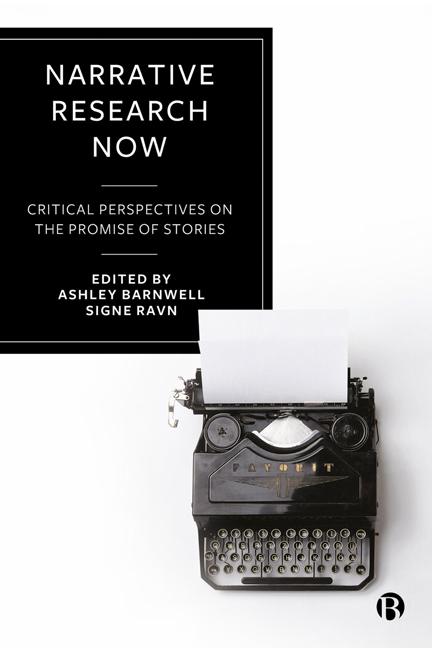1 - Narrative Now: Trends and Tensions
Published online by Cambridge University Press: 28 March 2024
Summary
Narrative research gathered momentum in the 1980s and 1990s and has been a popular approach across a range of disciplines ever since. As scholars became increasingly interested in the stories people tell about themselves and how they make sense of their place in the world, narrative provided a means for exploring these questions, putting such stories at the centre of inquiry. With this rise in interest, literature on narrative also flourished. Alongside a number of how-to textbooks that introduce narrative methods (Riessman, 2008; Elliot, 2005; Andrews et al, 2013), distinct journals dedicated to the narrative approach are now well-established. While the understanding of what exactly a narrative is may differ across disciplines (an issue we return to later in this chapter), scholars share a common interest in narrative’s use for individual and collective meaning-making and the power of storytelling for understanding social change. However, with this enthusiasm for narrative comes challenges that may lead some to perceive narrative approaches as naive and no longer up to the task.
These challenges include well-known points of critique about the trouble of ‘giving voice’ and an increasing awareness of the politics of representation (for example, Moreton-Robinson, 2000; Shuman, 2005; Bjӧrninen et al, 2020). But they also reflect more recent developments, where the site of narrative inquiry extends well beyond the academy. First, narrative is now a hot topic across a broad range of spheres. From therapy (Morgan, 2000; White, 2007) to sport (Kelly, 2020), narrative has been popularised and, in some cases, instrumentalised. Similarly, narrative has emerged as a buzzword in the corporate sphere, with businesses encouraged to develop a ‘brand narrative’ or reach staff and clients via ‘strategic stories’ (Patterson, 2002; Damodaran, 2017; Dolan, 2017), and with new job titles such as ‘Chief Storyteller’ finding their way into organisational language; a turn that Brooks (2022) has termed a ‘narrative takeover of reality’ (p 7). This has led to calls for reflection on the wider uses of storytelling, including from within narrative research as a field. Second, the potential misuses of narrative in what has been termed the ‘post-truth era’, where dubious accounts multiply and circulate unregulated online, has reignited critical stances towards narrative and posed questions about truth and authenticity (Salmon, 2010; Mӓkelӓ et al, 2021; Brooks, 2022). These recent developments, as well as ongoing questions about representation and ethics, drive the inquiries of this book.
- Type
- Chapter
- Information
- Narrative Research NowCritical Perspectives on the Promise of Stories, pp. 1 - 16Publisher: Bristol University PressPrint publication year: 2023

